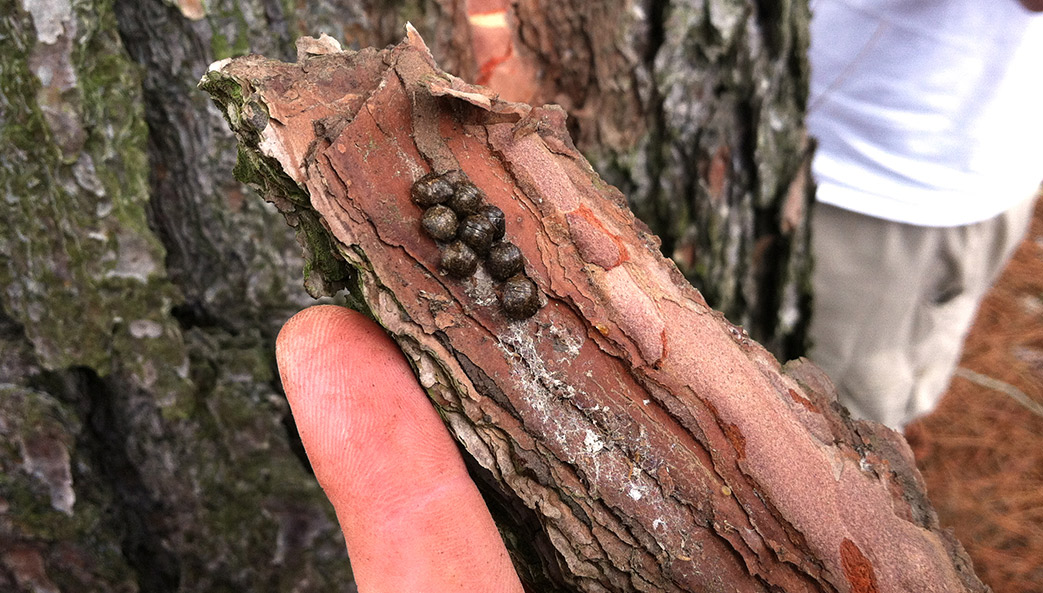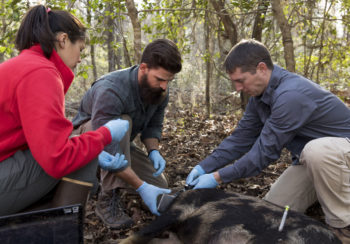Thanks to a new app, citizen scientists can help researchers track and stop the spread of invasive species like feral pigs, Chinese privet, cogongrass and kudzu bugs by reporting and mapping sightings of these invasive species.
The University of Georgia Center for Invasive Species and Ecosystem Health partnered with the U.S. Forest Service and Wildlife Forever, a conservation nonprofit, to develop the smartphone app, called “Wild Spotter,” to identify and report invasive species in the remote wilderness and other natural areas across the 193-million-acre national forest system.
Wild Spotter was designed to help researchers map invasive species using a smartphone app, website and customized marketing campaign. The app will help the Forest Service target aquatic and terrestrial invasive species in wilderness areas and wild and scenic rivers.
The partnership initially focused on building a citizen-science base in 12 ecologically diverse national forests scattered from coast to coast. Ultimately, the project will grow to include all 174 national forests and grasslands, according to Chuck Bargeron, associate director of UGA’s invasive species and ecosystem health center, commonly known as Bugwood, in Tifton, Georgia.
“It is impossible for agencies like the U.S. Forest Service to monitor all of their lands. Reaching the public, who are in these specific areas across the country, is a solution to help find new infestations before they spread,” Bargeron said.
These infestations involve harmful exotic plants, animals, fish, invertebrates, pathogens and other species that invade different ecosystems each year. These invasions reduce biodiversity and productivity, weaken local economies, and impact human and animal health.
The Wild Spotter program provides people with the tools they need to help locate, quantify, map and report these invasive species infestations.
“Invasive species cause economic and environmental damage to ecosystems across the world. Estimates have been as high as $120 billion a year in the United States,” Bargeron said.
Citizen-scientist volunteers who download the Wild Spotter app and use the program can also identify and report unfamiliar species they find while they’re vacationing in America’s wild places. The data is verified by experts and made public through an invasive species database hosted by UGA.
“We are very proud that Wild Spotter is expanding citizen-science-volunteer capacity against invasive species by capitalizing on the outdoor activities of millions of people who are already enjoying some of the most beautiful places in America,” Bargeron said. “Like the idea of ‘see something, say something,’ the Wild Spotter program greatly enhances the early detection and rapid response capabilities of agencies like the U.S. Forest Service.”
To learn more about the Wild Spotter program, visit www.wildspotter.org. Learn more about the Center for Invasive Species and Ecosystem Health at www.bugwood.org.
The Wild Spotter app is free and available in Apple and Android app stores.






